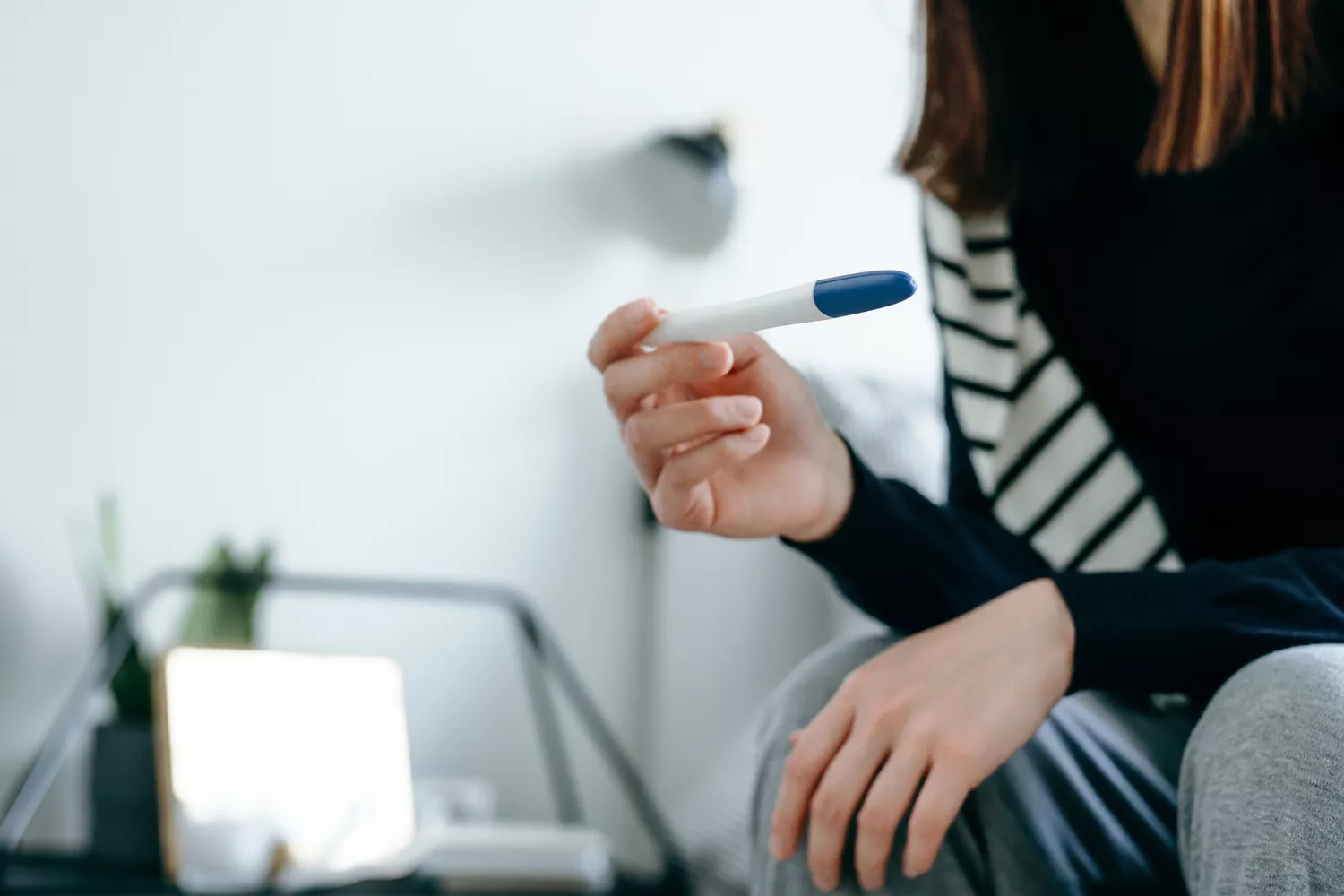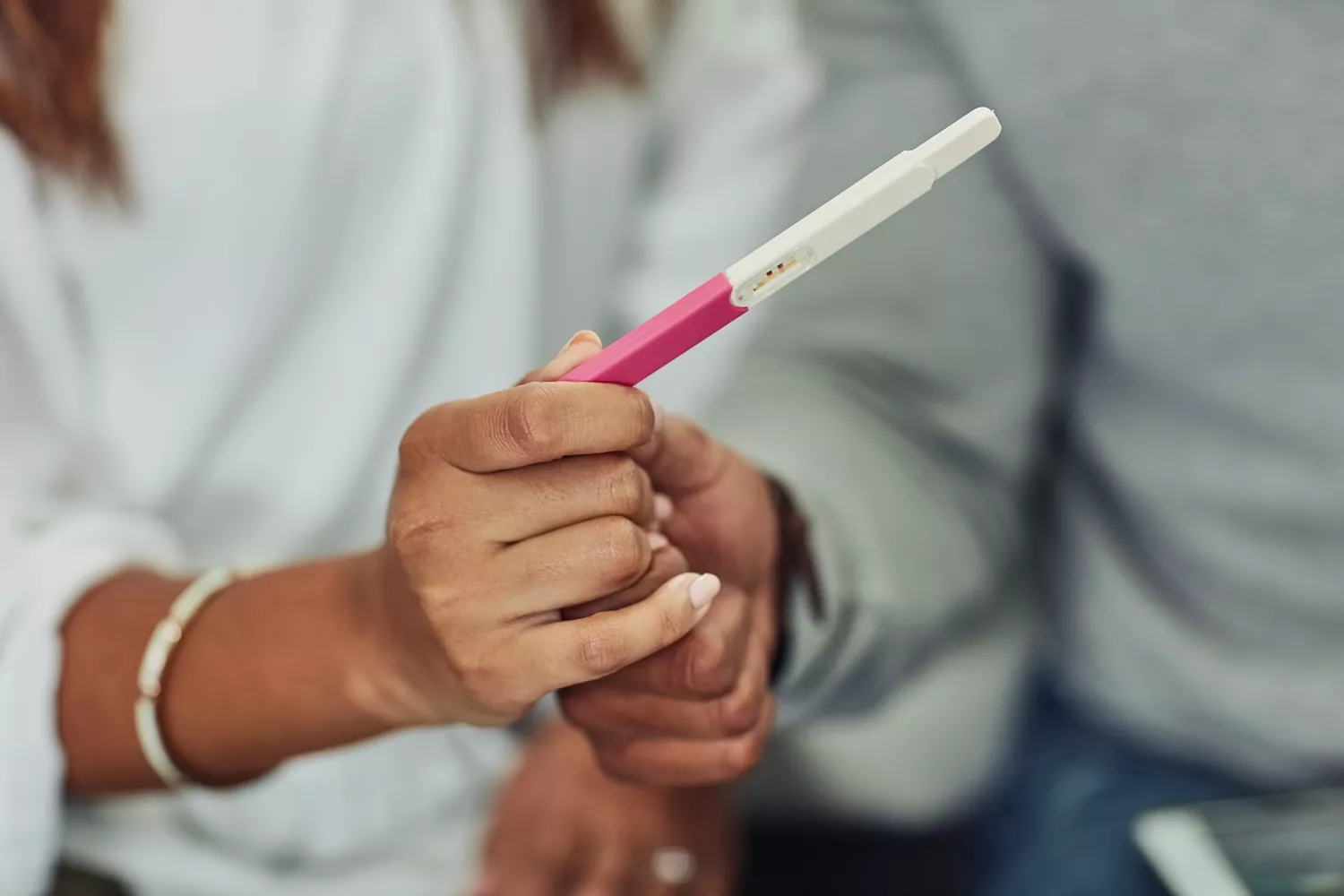You’re late with your period but your pregnancy test is negative. What now?


You may wonder what it means if, despite missing your period, you still receive a negative test. This is especially true if you’ve been trying to get pregnant. Before you worry, it is important to recognize that a false negative can happen.
False negatives are most often caused by taking a pregnancy test early in your cycle or not following the instructions of the manufacturer. A false negative could also be caused by fluctuations in your menstrual period.
Julia Arnold VanRooyen M.D. explains that not all women experience monthly periods. It is normal for women to have periods that range from 21 to 35 days. Periods can also vary month-to-month.
Other causes of missing your period are not limited to these fluctuations and the taking the test early. Continue reading to learn why you might have missed your period. You will also discover how accurate pregnancy tests can be and when it is best to contact a healthcare provider.
14 Early Signs Of Pregnancy
Why your period might be late
There are many reasons why you might be late with your period. These include hormones, stress, excessive exercise and weight changes.
There could also be other factors involved. Take a look at the most common causes of missing a period, which have nothing to do being pregnant.
Lifestyle Factors
Do you exercise excessively? Are you breastfeeding your child or are under a lot stress? According to Dr. VanRooyen, any of these factors could cause your period to be delayed or even missed. The impact of these situations on estrogen levels is the main reason for this. 2
Dr. VanRooyen explains that estrogen, the hormone which builds the uterine lining and is shed during a period of menstruation, is made primarily in the ovaries but also in the adrenal glands as well as in the fat cells. “Since large weight changes can affect the level of estrogen, it is important to monitor your weight.”
Stress activates adrenal glands and causes them to produce cortisol. She says that this can also suppress estrogen secretion. Even excessive exercise that results in very low body fat levels can lead to decreased estrogen.
It’s possible that you will miss your period while breastfeeding. This is especially true if you are exclusively breastfeeding. This is because the hormone prolactin temporarily blocks estrogen. 3 Most health care providers still recommend that you use birth control if breastfeeding.
Medicines
Many medications can cause a delayed or missing period. Dr. VanRooyen says that hormonal contraceptive methods, such as oral contraceptive pills or patches, vaginal ring, or certain IUDs, can all cause irregular periods.
She adds, “Many women experience lighter periods and some even stop their periods completely when using hormonal contraception.” This is not dangerous or alarming. blood thinners, steroids and certain chemotherapy drugs can also cause changes in menstrual cycle .
Fluctuating Hormones
Changes in hormone levels can also cause missed or absent cycles. If you have an underactive or overactive thyroid, this can lead to irregular menstruation. 2
Your pituitary gland also regulates hormones which affect your reproductive cycle and other body functions. The tumor can cause irregular menstruation or even miss periods.
This is the stage before menopause when reproductive hormones decline, explains a data-component=”link” data-ordinal=”1″ data source=”inlineLink” The reproductive hormones are declining in this stage, which is before menopause. Joanne Armstrong M.D. MPH, OB-GYN and vice president and chief medical office of Women’s Health and Genomics, CVS Health, explains.
“During the perimenopausal year, which is typically after 40 years of age, ovarian function becomes more irregular and gradually diminishes. Hormone levels also drop,” explains Dr. VanRooyen. The average age for menopause is 51 in the United States. This means that hormone levels are changing and irregular menstruation is more common as you age.
Ectopic Pregnancy
6 This type of pregnancy occurs when the embryo implants in the fallopian tube instead of the uterus. However, it can occur anywhere. The likelihood of an ectopic birth is increased by scarring and damage to the fallopian tube, such as previous infections or surgery.
A ectopic pregnancy is not viable and does not develop properly. The formation of the placenta is delayed and the production of pregnancy hormone human Chorionic Gonadotropin is disrupted. This can also be dangerous if the fallopian tubes rupture.
Dr. VanRooyen says that the ectopic grows initially like a normal pregnancy. However, once it reaches certain sizes, it can no longer develop as the fallopian tubes are not designed to grow like a uterus. This can lead to increased pain, bleeding and, in some cases, a rupture of the tube if not treated.
If you miss your period, and experience severe abdominal pain along with nausea, vomiting, dizziness or sudden vaginal bleed, contact a doctor immediately. This could be symptoms of an ectopic pregnancies.
Medical Conditions
Dr. Armstrong says that a number of disorders, such as polycystic Ovarian Syndrome (PCOS) can also cause irregularities in your cycle. PCOS is a hormonal condition that affects the ovaries. It can cause missed periods because of lack of ovulation or higher levels of androgens.
She also points out that endometriosis, Von Willebrand’s disease (a blood-clotting disorder), or endometrial carcinoma (cancer cells found on the uterine lining) may cause irregular, heavy or missed periods.
How to take the most accurate pregnancy test at home
Can a Pregnancy Test Ever Be Wrong?
At-home tests can be a good way to find out if you’re pregnant. If you missed your period and got a negative test result but still think you’re pregnant, it’s possible that the result is a false-negative, especially if the pregnancy test was taken too early or you didn’t follow the instructions.
Researchers have found that taking a test before enough hCG has been detected in the urine is the leading cause of inaccurate results. 7 This usually occurs when you estimate your period incorrectly.
It is possible to experience significant differences between cycles, even if you know the exact date of your last cycle. While at-home tests are claimed to be highly reliable, providing accurate results 95% of the time, these claims are based upon laboratory testing of urine under ideal conditions. IRL accuracy may be lower than claimed. A review of published research found that the accuracy of at-home pregnancy tests may actually be lower.
Dr. Armstrong says that urine-based at-home tests are usually sufficient for women who have missed their period or who want to test again if they get a negative result.
She says that if you need to exclude pregnancy because of other health plans or procedures coming up, then talk to your provider about the option of a serum or blood test. These tests will help you to determine if the result from your home test is accurate.
How to use the 8 best pregnancy tests
What to do when you need to contact a health care provider
You should consult a doctor if you miss two or three consecutive periods but still get a negative result on a pregnancy test. Most doctors will start a workup after three missed periods to determine why you’re not menstruating.
Dr. Armstrong adds, “An irregular or missed period is common in our lives.” If you miss two or three periods in a short period of time, you may want to consult your doctor to determine if there’s a underlying problem. It is important not to overlook missed periods.








